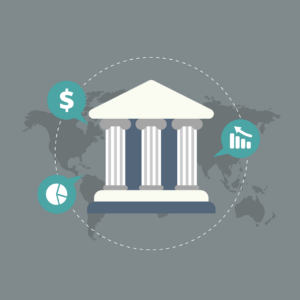 This week’s top story: June mortgage rates. In other news: Some big stores are cutting prices to woo back grocery shoppers, rename your ’emergency fund’ if that suits your saving style, and first-time home buyer affordability report – Q1 2024.
This week’s top story: June mortgage rates. In other news: Some big stores are cutting prices to woo back grocery shoppers, rename your ’emergency fund’ if that suits your saving style, and first-time home buyer affordability report – Q1 2024.
June Mortgage Rates: Calm at Takeoff, Then Subject to Turbulence
Mortgage rates probably won’t vary much in the first week and a half of June. But starting June 12, it’s anyone’s guess what rates will do.
Some Big Stores Are Cutting Prices to Woo Back Grocery Shoppers
With grocery prices stabilizing, retailers like Target and Walmart are touting summer discounts on an array of items.
Rename Your ‘Emergency Fund’ if That Suits Your Saving Style
Whatever you choose to call your short-term savings account might help you use it more effectively. Here’s how experts suggest you approach it.
First-Time Home Buyer Affordability Report – Q1 2024
In the first quarter, prices didn’t rise, but they also didn’t come down.
 This week’s top story: Smart Money podcast on CDs and managing a life-changing windfall. In other news: How to minimize the impact to your business from a bank failure, how Silicon Valley Bank failed, and the hurdles on the road to Medicare coverage of cannabis.
This week’s top story: Smart Money podcast on CDs and managing a life-changing windfall. In other news: How to minimize the impact to your business from a bank failure, how Silicon Valley Bank failed, and the hurdles on the road to Medicare coverage of cannabis. Today’s top story: Calibrate your emergency fund to a crisis-prone world. Also in the news: How to give stock as a gift, what you need to know about Joe Biden’s student loan plan, and the pros and cons of Buy Now, Pay Later retail loans.
Today’s top story: Calibrate your emergency fund to a crisis-prone world. Also in the news: How to give stock as a gift, what you need to know about Joe Biden’s student loan plan, and the pros and cons of Buy Now, Pay Later retail loans. Today’s top story: Should seniors consider a reverse mortgage now? Also in the news: Make the most of these store cards during a crisis, financial experts say a recession could be looming, and why you should think of your HSA as an extension of your emergency fund.
Today’s top story: Should seniors consider a reverse mortgage now? Also in the news: Make the most of these store cards during a crisis, financial experts say a recession could be looming, and why you should think of your HSA as an extension of your emergency fund.